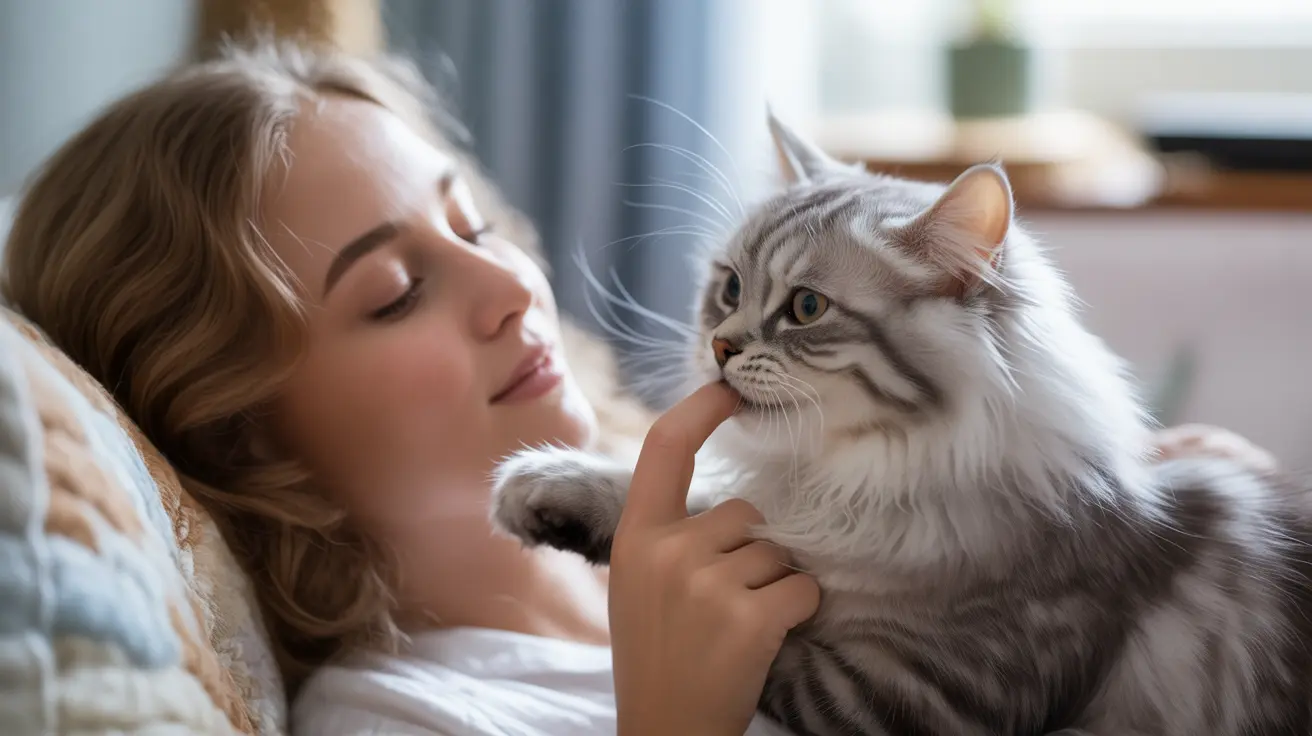If you've ever been startled awake by your cat's teeth gently (or not so gently) nipping at your toes, fingers, or face, you're not alone. Many cat owners experience this puzzling nighttime behavior, leaving them wondering why their usually affectionate feline friend turns into a nocturnal nibbler. Let's explore the reasons behind this common behavior and learn how to address it effectively.
Understanding why your cat bites you during sleep requires looking at several factors, including their natural instincts, communication methods, and potential environmental triggers. This comprehensive guide will help you decode your cat's nighttime behavior and develop strategies to ensure peaceful sleep for both you and your feline companion.
Natural Instincts and Nocturnal Nature
Cats are crepuscular animals, meaning they're most active during dawn and dusk. This natural rhythm often conflicts with human sleep schedules, leading to increased activity when you're trying to rest. Your cat's predatory instincts remain strong even in domestication, making your moving feet or hands under the covers an irresistible target for their hunting behavior.
Movement during sleep, such as rolling over or twitching, can trigger your cat's prey drive, leading them to pounce and bite. This behavior is particularly common in younger cats or those who weren't properly socialized to avoid treating human body parts as toys during kittenhood.
Attention-Seeking and Communication
Cats quickly learn that biting is an effective way to get their owner's attention. If your cat is hungry, bored, or simply wants interaction, they might resort to gentle nips or more forceful bites to wake you up. This behavior often becomes reinforced when owners respond by getting up to feed or play with their cats.
Some cats also use gentle bites as a form of affection, known as "love bites." However, these typically occur during wakeful interactions rather than sleep time. It's important to distinguish between affectionate nibbles and attention-seeking behavior.
Environmental Factors and Stimulation
A lack of environmental enrichment often leads to increased nighttime activity and biting behavior. Cats need regular physical and mental stimulation throughout the day to maintain healthy sleep patterns. Without adequate play and enrichment, they may seek entertainment from their sleeping owners.
Changes in the household routine, new pets, or environmental stressors can also trigger increased nighttime activity and biting behavior. Cats may feel more secure or territorial during quiet nighttime hours, leading to increased interaction with their owners.
Prevention and Training Strategies
The key to preventing nighttime biting lies in addressing your cat's needs during waking hours. Implement a consistent routine of interactive play sessions, especially before bedtime, to help expend their energy. Provide environmental enrichment through climbing spaces, scratching posts, and puzzle feeders that can keep them occupied while you sleep.
Never encourage play with hands or feet, as this can reinforce biting behavior. Instead, redirect their attention to appropriate toys and provide positive reinforcement when they play with these alternatives. Consider automated toys or feeding puzzles that can provide entertainment during nighttime hours.
Medical Considerations
Sometimes, nighttime biting can indicate underlying medical issues. Pain, discomfort, or anxiety might cause your cat to seek attention or express distress through biting. If the behavior suddenly develops or is accompanied by other changes in behavior, consult your veterinarian to rule out medical causes.
Frequently Asked Questions
Why does my cat bite me when I'm sleeping?
Cats may bite during sleep due to their natural hunting instincts, attention-seeking behavior, or a need for play and stimulation. This behavior can also be triggered by movement under bedding or environmental factors affecting their routine.
What are the common reasons behind nighttime cat biting behavior?
Common reasons include natural predatory instincts, boredom, attention-seeking, hunger, or inadequate daytime stimulation. Some cats may also bite due to anxiety, stress, or medical issues.
How can I prevent my cat from biting me while I sleep?
Increase daytime play sessions, provide environmental enrichment, establish a consistent feeding schedule, and ensure adequate exercise before bedtime. Never reinforce biting behavior by responding with attention or play.
Is it normal for cats to give "love bites" during the night, and how can I distinguish them from aggressive bites?
While love bites typically occur during wakeful interactions, nighttime bites are usually attention-seeking or play-related. Love bites are generally gentle, while aggressive or play bites tend to be more forceful and may be accompanied by other predatory behaviors.
What are some strategies for directing my cat's energy away from biting me during sleep and toward toys or other enrichment activities?
Provide interactive toys, climbing structures, and puzzle feeders. Set up automated play devices for nighttime entertainment, establish a consistent play routine, and create designated activity zones away from the sleeping area.
By understanding and addressing the underlying causes of your cat's nighttime biting behavior, you can work toward creating a more peaceful sleeping environment for both you and your feline friend. Remember that patience and consistency are key when modifying any pet behavior.






